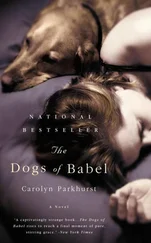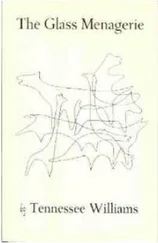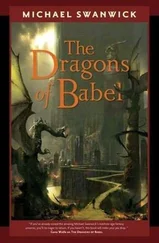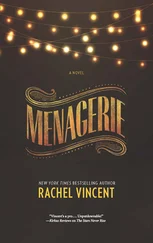Картер Шольц - The Menagerie of Babel
Здесь есть возможность читать онлайн «Картер Шольц - The Menagerie of Babel» весь текст электронной книги совершенно бесплатно (целиком полную версию без сокращений). В некоторых случаях можно слушать аудио, скачать через торрент в формате fb2 и присутствует краткое содержание. Жанр: sf_etc, на английском языке. Описание произведения, (предисловие) а так же отзывы посетителей доступны на портале библиотеки ЛибКат.
- Название:The Menagerie of Babel
- Автор:
- Жанр:
- Год:неизвестен
- ISBN:нет данных
- Рейтинг книги:4 / 5. Голосов: 1
-
Избранное:Добавить в избранное
- Отзывы:
-
Ваша оценка:
- 80
- 1
- 2
- 3
- 4
- 5
The Menagerie of Babel: краткое содержание, описание и аннотация
Предлагаем к чтению аннотацию, описание, краткое содержание или предисловие (зависит от того, что написал сам автор книги «The Menagerie of Babel»). Если вы не нашли необходимую информацию о книге — напишите в комментариях, мы постараемся отыскать её.
The Menagerie of Babel — читать онлайн бесплатно полную книгу (весь текст) целиком
Ниже представлен текст книги, разбитый по страницам. Система сохранения места последней прочитанной страницы, позволяет с удобством читать онлайн бесплатно книгу «The Menagerie of Babel», без необходимости каждый раз заново искать на чём Вы остановились. Поставьте закладку, и сможете в любой момент перейти на страницу, на которой закончили чтение.
Интервал:
Закладка:
For a year I persisted, walking the two miles from our apartment to the labs almost every night, entering between the two stone rhinoceri, the grates in the quad steaming in all seasons and their mist forming coronae around the lamps. Every time I saw it I fancied that the steam was the eager breath of the gene-splicers, tainting the outer world. Eventually I had my second generation of Alytes and encouraged them to mate in water, contra naturam. I cleaned the fertilized eggs and kept them alive for two weeks. And then the approval for my project was withdrawn. My incubators were shut off.
I see what drove Kammerer to suicide. All work for a community is in three parts: constitution, execution, and interpretation. The constitution is communal: you draw on common knowledge. Execution, the creative act, is irremediably isolated and solipsistic: the mind alone with its labor must take unique responsibility for everything it draws on, whether communal, original, learned by design or at hazard. And the only possible redemption is in the interpretation: from that isolated solipsism the community must be able to draw meaning. Kammerer failed at the last step, and so was left with a personal burden of impersonal knowledge unredeemed.
Did I really think I could start over? That my being was unpursued by its history? I put aside my application to Berkeley.
An odd coincidence I discovered later was that Kammerer shot himself on my birthday. Another was that the son of Kammerer's harshest critic was at this time a regent of the University of California. Kammerer was a collector of coincidences, and I gather these here only for his sake, and for Murphy, who would doubtless find them meaningful.
I wonder if forms have their own lives. I wonder if shapes in time repeat themselves, at periods, in variations, diminutions, augmentations. I owned an elementary book on topology, and it soothed me to read it. In topology there is no direction, no time, and its forms are greatly mutable. Torus: a coffee cup is congruent with the human body or a doughnut. Mцbius strip, Cantor set, Klein bottle: I loved these names, pure poems of ideal space, tokens of the mind's power. I loved that such irreal forms could have a taxonomy. Names grant power. The true names of things are holy and fearsome. The true name of a thing can keep it at bay. Sometimes I imagined the worst in order to forestall it happening. But there is always something you fail to imagine.
It is only by a long series of small accidents that we become what we are, and although we remain only what we are, we can still look back on branching paths of possibility now cancelled, an angel at each, that might have led to different selves. What is the number of these accidents? What is the shape of necessity? The notion that everything is possible is monstrous, so we restrict reality by observing, then defining, then excluding what does not fit our definitions. The plenum is reduced to the principle of plenitude. But the excluded remain with us; the bypassed angels haunt us.
To me this was the true menagerie, the myriad acts or failures of will that make us what we are. Since I felt or hoped that creation was a plenum of necessity, I suppose I should have felt the same about my choices. But
I believed my will imperfect and liable to error. Murphy seemed to me different: driven by the need of his delusions, unfree to choose his path and thus to err. This then was the basis of our friendship, as I saw it.
What I needed from him. Life is the exchange of energies.
What Murphy needed from me was still unclear. So I listened. By degrees he opened up to me about himself rather than his ideas. He was born in California. He had never finished high school. He put himself through a trade school by selling commercial illustrations. He worked in numerous small ad agencies, always quitting after a brief time. He had no social life at all, and filled his off hours by reading von Daniken, Velikovsky, Nietzsche, Bergson, Borges, Hegel, Heinlein, Ouspensky, a chaos of interests. He owned no books on art.
Family trees, evolutionary charts, the labyrinth of choice, the drawings in my topology book of Alexander's horned sphere, all had the same shape.
I came to see Murphy's life as congruent in ideal space to my own.
He began a painting. To cadge a glimpse I teased him about not using always the same kinds of lines. He said solemnly, This is something else.
I'll show you when it's done.
He kept the canvas turned to the wall when he wasn't working on it. It left on the white wall a growing overlap of varicolored lines where the wet top edge had leaned.
Topology, evolution, competition, cooperation, plenitude: these are stories we tell ourselves, as scientists, as politicians, as humans, to hold back what we dare not embrace. But time and the timebound mind are unforgiving; the excluded are with us always.
This is the story I do not want to tell: the real reason I came west.
I came west because of John Lang. He was a year ahead of me at school. We had the same friends. He introduced me to the other great fiction of the nineteenth century, that of Karl Marx, the grand vision of cooperation as the furthering force of life.
The metaphor did not hold in biology. Lysenko had been the great Soviet Lamarckian, a great fraud working against all evidence to vindicate the Marxist idea that life was not a free-market economy. But in time even the Soviets had bowed to their losing scientific competition with Darwinism, and Lysenko was written out of history. I knew that. But as a binding fiction of social life that we can learn, that effort is not lost at death, that cooperation strengthens it was still appealing. It was right.
Lang was no exemplar, however. When he graduated he went straight to work in his father's New Jersey chemical firm. We made him the butt of our tolerant abuse: poor John, twenty-one and already bourgeois. He was making thirty thousand a year and drove up to Cambridge often. We would joke with him and nurse him like a sick bird.
I was living then with Joann, a slim dark beauty. A painter. For three years we were married in all eyes but the law's. When I returned from Woods Hole she was living with Lang. He had finally quit his job. They took me out to dinner. As the food arrived I fled, nauseated at the part I had to play, at my ineffectualness, my poverty, my pain.
The next week was comedy, if you like, as I moved from the apartment of one friend to the next, sleeping on living-room couches, receiving unsolicited analysis, sympathy, use and abuse. How any human being ever speaks to another remains a deep mystery to me.
I resented that Lang was using her as the flag of his liberation. "Living in sin" was how he phrased it to everyone but me. And I resented that there was that in Joann to respond to his instrumentalism. I wondered what story I had used to blind myself to the possibility of betrayal. For as Lang reminded me, almost sadly, betrayal is possible only within a framework of cooperation. How had I collaborated in my betrayal?
I told no one when I went west, leaving Lang in my bedroom, with my books and plants, with the cat I had saved from a neighbor's drowning. I fled lamenting. How could he ever know her as I had?
But if I cannot judge Murphy, how can I possibly judge Lang? He had known what he needed for his life. He had acted. And I had not even known that I was in competition for her.
I bought a radio. Late at night, when most stations were off the air, I listened to static. Sometimes I would tune to a talk show. I seldom went to bed before three. It was here, after a month in Berkeley, that I was fully and finally acquainted with the depth of Murphy's neurosis. I was reading a book on phylogeny, listening in the gaps of my attention to the murmur of unseasonable rain and the radio, a discussion of flying saucers I think. I could ignore the sound of talk more easily than I could music, but an insistent inflection turned my attention to the radio's tinny monologue.
Читать дальшеИнтервал:
Закладка:
Похожие книги на «The Menagerie of Babel»
Представляем Вашему вниманию похожие книги на «The Menagerie of Babel» списком для выбора. Мы отобрали схожую по названию и смыслу литературу в надежде предоставить читателям больше вариантов отыскать новые, интересные, ещё непрочитанные произведения.
Обсуждение, отзывы о книге «The Menagerie of Babel» и просто собственные мнения читателей. Оставьте ваши комментарии, напишите, что Вы думаете о произведении, его смысле или главных героях. Укажите что конкретно понравилось, а что нет, и почему Вы так считаете.







